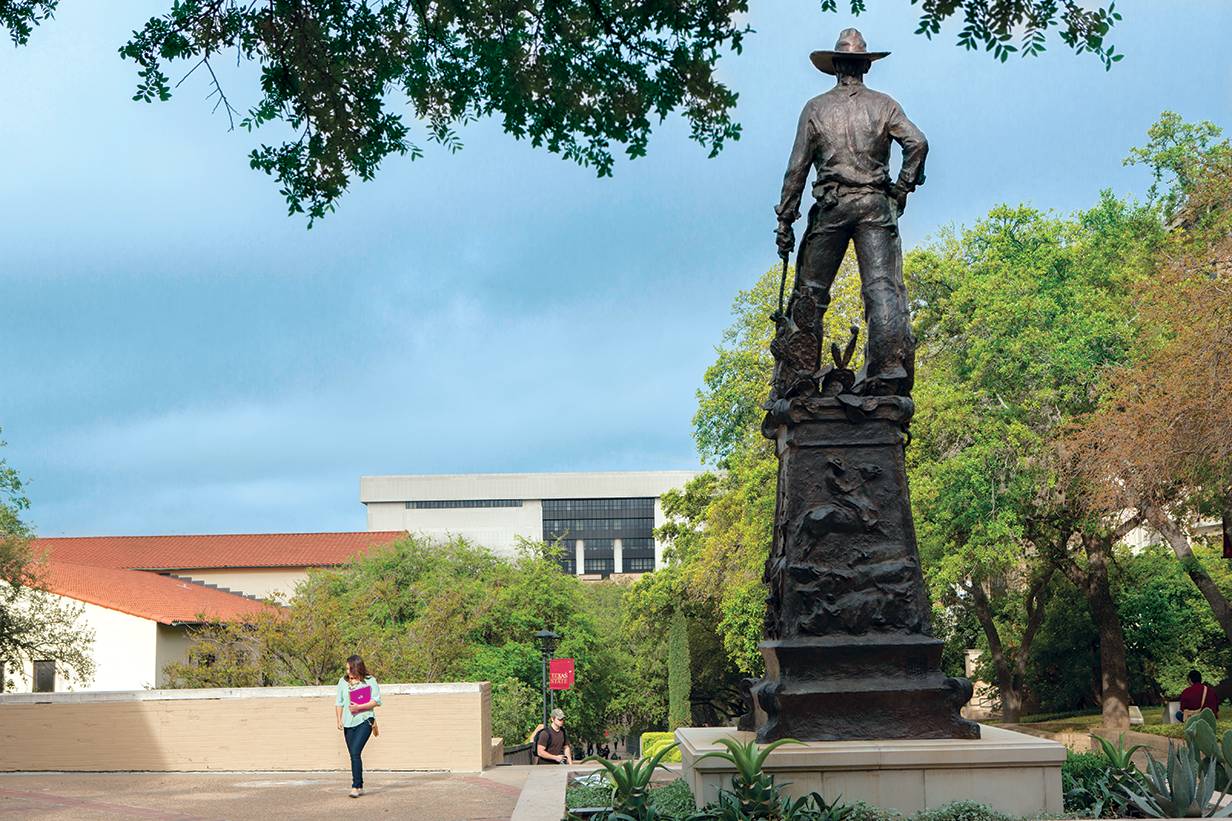Educational and Community Leadership (Ph.D.)
Ph.d. Educational and Community Leadership

Program Overview
Recognized by the University Council for Educational Administration (UCEA) as a national model for creating equity-oriented leaders, the program emphasizes the improvement of PK-12 teaching and learning through the development of systems-level processes and structures and prioritizes educational leadership as a practice integrating school and community contexts.
Course Work
The program takes an interdisciplinary approach to educating equity-oriented scholar-practitioners who view education through a variety of lenses. Students have the opportunity to incorporate international research into course work.
Students are admitted as a cohort that begins in the fall semester of each year. All classes are offered in the evenings or on weekends for the convenience of working professionals. The program consists of 48 hours of course work and 12 hours of dissertation for a total of 60 hours.
- core (foundational) courses
- major (Educational and Community Leadership) courses
- doctoral electives
- dissertation proposal development
- research courses
- dissertation courses
| Degree | Course Work | Dissertation | Total Hours | Location |
|---|---|---|---|---|
Degree Ph.D. | Course Work 48 hours | Dissertation 12 hours | Total Hours 60 hours | Location San Marcos/Round Rock |
Round Rock Campus
Applicants can apply for the San Marcos cohort or the Round Rock Campus Cohort. For applicants applying for the San Marcos Cohort, instruction will be fully in-person. For applicants applying to the Round Rock Cohort, instruction will 80% distance education and 20% in-person. Admitted students will be required to take classes at the campus to which they applied.
Program Details
The program brings together students with diverse backgrounds, experiences, perspectives and professional goals to study with nationally recognized faculty who collaborate with students on research projects, publications and conference presentations.
Program Mission
The Educational and Community Leadership doctoral program is designed for professionals in a variety of educational roles who wish to develop and enhance their capacity for facilitating ongoing educational improvement. The program offers the opportunity to conduct research to inform practice and to prepare educational practitioners.
The program develops skills in the following areas:
- transformational school leadership
- culturally responsive leadership
- professional development
- curriculum development
- instructional improvement
- improvement of student assessment
- educational philosophies and educational research with both qualitative and quantitative methodologies
Related Programs: Principal Certification | Superintendent Certification
Career Options
Doctoral students in this program may be preparing for roles including:
- superintendent
- principal
- assistant principal
- university professor
- university administrator
- department chair or team leader
- instructional supervisor
- curriculum coordinator
- educational researcher
- school district administrator
- staff developer
- government agency administrator
- educational nonprofit administrator
- educational consultant
Program Faculty
Faculty members are experienced P-12 teachers, administrators and researchers. This practical background enables the professors to demonstrate to students the manner by which ideas, techniques and policy studies may be applied in a school setting. The faculty is actively engaged in professional organizations at state and national levels. They also serve as consultants to numerous school districts in personnel searches, facility studies, curriculum projects, staff development and professional organization accreditation studies.
Contact us for general questions about your application, funding opportunities, and more. If you have specific questions after reviewing the program details, contact the program's graduate advisor.
Doctoral Program Director
Dr. Melissa Martinez
mm224@txstate.edu
512.245.4587
Academic Services Building South (ASBS), Room 322
Advisor Support
Jacqui Todd
jt39@txstate.edu
(512) 245-9909
Education Building, Room 4021

Apply Now Already know that Texas State is right for you?
Application Deadlines
| Deadlines | U.S. Citizen | International |
|---|---|---|
Deadlines Fall | U.S. Citizen January 1 | International January 1 |
The deadline for fall 2025 admission has been extended to March 1, 2025.
This program's deadline is firm. This type of deadline means the application and other application requirements must be submitted by the program's specified deadline day.
Funding Information
For scholarship, fellowship or assistantship consideration, applications must be completed by the deadline above.
Decision Timeline
This program reviews applications on a firm basis.
Admission Requirements
The items required for admission consideration are listed below. Additional information for applicants with international credentials can be found on our international web pages.
-
Application
- Completed online application
Review important information about the online application.
-
Application Fee
- $55 nonrefundable application fee
OR - $90 nonrefundable application fee for applications with international credentials
Review important information about application fees.
- $55 nonrefundable application fee
-
Transcripts & GPA
- baccalaureate degree from a regionally accredited university (Non-U.S. degrees must be equivalent to a four-year U.S. Bachelor’s degree. In most cases, three-year degrees are not considered. Visit our International FAQs for more information.)
- master's degree in a field related to the proposed studies from a regionally accredited university
- a copy of an official transcript from each institution where course credit was granted
- minimum 3.5 GPA in all completed graduate course work
Review important information about transcripts. Official transcripts, sent directly from your institution, will be required if admission is granted.
-
Test Scores
GRE
- GRE not required
Approved English Proficiency Exam Scores
Applicants are required to submit an approved English proficiency exam score that meets the minimum program requirements below unless they have earned a bachelor’s degree or higher from a regionally accredited U.S. institution or the equivalent from a country on our exempt countries list.
- official TOEFL iBT scores required with a 78 overall
- official PTE scores required with a 52 overall
- official IELTS (academic) scores required with a 6.5 overall and
- minimum individual module scores of 6.0
- official Duolingo Scores required with a 110 overall
- official TOEFL Essentials scores required with an 8.5 overall
This program does not offer admission if the scores above are not met.
Review important information about official test scores.
-
Documents & Other Requirements
- resume/CV
- statement of purpose (approximately 500 words) describing background and professional goals, including your rationale for pursuing a doctoral degree
- three recommendation forms addressing your professional and academic background. References are required to use the program's Professional Reference Evaluation form and are also strongly encouraged to attach a recommendation letter to the form.
- possible interview with program faculty
- possible academic writing sample
Review important information about documents.